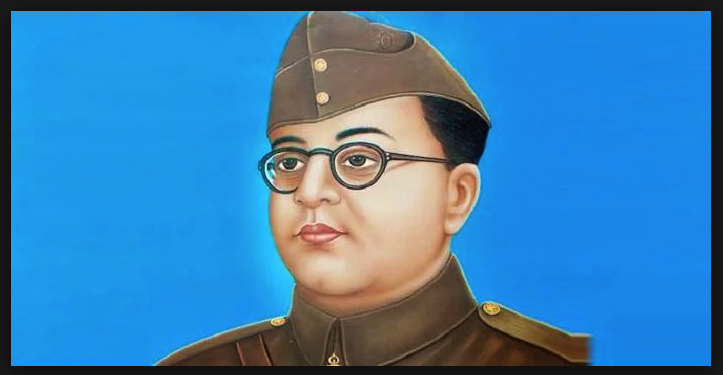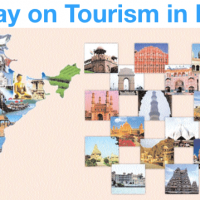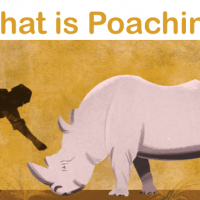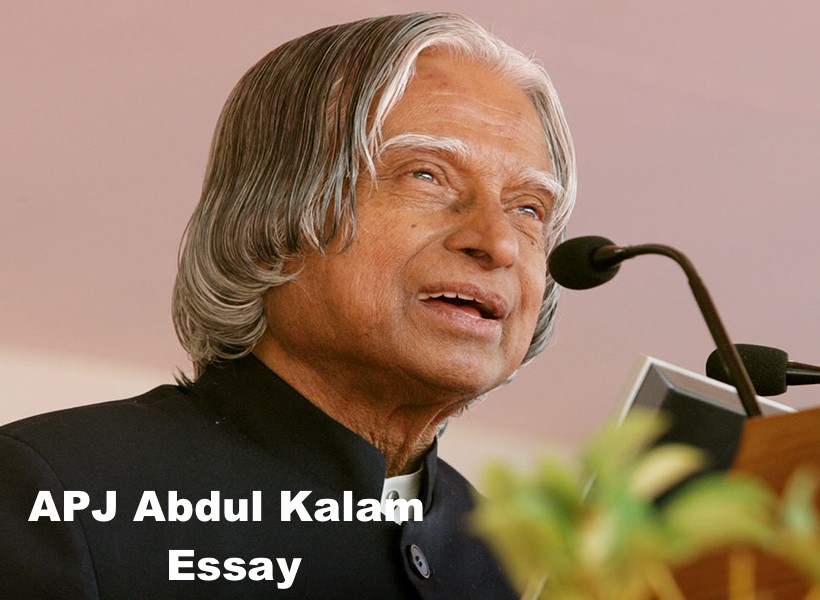Hello Friend This is special category for our small reader who study in school. If they looking for english essay for their school homework or any kind of english essay article then this special category might help you all guyz. in this article we will share Subhash Chandra Bose Essay in English for all class children and student . Initially we have published 300 word and 1000 word article for Subhash Chandra Bose .
Subhash Chandra Bose Essay in English

Few leaders of the world can claim of being as selfless as Subhash Chandra Bose, who was fondly called Netaji. It is another matter that the word ‘Netaji no longer commands the re spect it commanded with him He was truly a leader of the highest quality and intellect, For him only nation mattered; and he was willing and always ready to go to any extent to free India from the yoke of slavery The air crash which is supposed to have killed him is indicative of the kind of risk he took to free India from the English control.
He was born with a fighting spirit. No matter what the adversity, he never buckled under pressureHe was a hot breed and a patriot to the hilt. Once at the Presidency College in Calcutta, the British principal made a derogatory remark about Indians in one of his lectures Subhash Chandra Bose led an attack against him. He was expelled from the college. This only shows how passionate he was about his country.
He was one of the foremost leaders engaged in India’s freedom movement. But he did not pursue the line of Gandhi and his non-violence He was a hot breed and believed that English would not leave unless it was forced to. So, while Gandhi fought on the principle of non-violence Subhash Chandra Bose prepared for the military onslaught. It was quite a Herculean task, but he formed Indian National Army called Azad Hind Fauj’ and set on course to overthrow the British Government.
He formed his army outside India and launched his forward march to Delhi. His famous call ‘Dilli Chalo‘ even today reverberates through the minds of many elders.
Netaji was a Bengali born in Cuttack in Odisha on 23rd January1897when India was under the yoke of the British Government. His father was a renowned lawyer and Subhash was the ninth child among fourteen siblings. He was a brilliant student and was influenced by the teachings of Swami Vivekananda. After graduating from Calcutta (now Kolkata, he went to England in 1919 to compete in Indian Civil Services He duly qualified for it and joined apprentice ship but soon left it and returned to India.
The Jallianwala Bagh incident turned him against the British.
For a brief spell, he remained under the influence of Gandhi and remained in Congress. He joined Gandhi’s non-cooperation movement in 1921. On the advice of Gandhi, he began to work under Desh bandhu (C.R. Das). He became a youth educator and later turned into a journalist to publish a Bengali weekly Banglar Kotha. When Desh bandhu started a college, Subhash was made the principal of that college called National College.
He also served the Calcutta Corporation as its Chief Executive Officer when Desh bandhu became mayor. He soon got disenchanted with Gandhi’s pacifist policies and developed differences with Gandhi on several matters. Un the question of complete independence, he differed with Gandhi. He formed Independence League, took part in civil disobedience and was jailed in 1930 and was released the following year following Gandhi-Irwin pact.
Subhash was not amused. He lodged his protest and opposed discontinuation of civil disobedience movement as Bhagat Singh was hanged. He was soon to be arrested again under the draconian Bengal Regulation. He was released on medical grounds but also deported out of India.
He used this period and opportunity to expand his contacts He returned to India despite the ban being in place and was promptly arrested.
It was only after the elections of 1937 that he was released from jail. This was the most crucial period in his life as he became the president of the party and began to plan things in concrete terms. He set up National Planning Committee and chalked out various programmesHe was re-elected the president of the party by defeat ing Gandhi’s handpicked man Pattabhi Sitaram miah With the possibilities of the Second World War looming large, he put forth some tough conditions before the British government.
The Government was asked to hand-over the reins of India to the Indians within six months or face a revolt. This tough posturing was opposed by some in the party He resigned and formed his own group called Forward Block.
He started a mass movement against the British Government for seeking to utilise In dian resources to fight the war. Finding people responding favourably to his call, he was put under house arrest in Calcutta from where he escaped in 1941 despite strict vigil of the government. He went to Afghanistan and from there with the help of his well-wisher she moved to Germany. He solicited the support of Germany and JapanGermany offered him the opportunity of radio-broadcasting his appeal to the Indians settled all over the world.
There was a tremendous response to his call for ousting the British. Rash Bihari Bose, who was running Indian Independence Movement in East India, made way for Netaji who formed Azad Hind Fauj’ comprising primarily of the prisoners of war. Leading this army he proceeded towards India in 1943.
On the wayback to India, his army liberated the Andaman and Nicobar Islands and his headquarters was shifted to Rangoon in 1944 and used it as his launching pad for liberating India. Soon his army crossed the Burma borders and moved into India in March 1944.
This was the crucial moment for his army and for Netaji himself. The defeat of Germany and Japan in the war unsettled his scheme. He was forced to re- treat. His objective of liberating of India could not be achieved.
It was about this time of August 1945 that details of life are obscured. There is no definite information whether it was Netaji who died in the air crash that occurred on the hills of Taipeh It was August 18 1945. Many believed Netaji died in that crash and still many others believed it was not Netaji who died in that air crash. Till date no definite information is available about his death.
Indians all over the World celebrate his birth anniversary not his death anniversaryNo one knows when he died, or whether he died at all. Even though Netaji was not around to see India gaining independence, he had prescribed that for the initial ten years India should be placed under benevolent dictatorship Who knows India would have been a different India today it his advice was taken !
Subhash Chandra Bose Essay in English
Subhash Chandra Bose gave the slogan ‘Give me blood and I will give you freedom and Jai Hind’. So much patriotic was our beloved Netaji, Subhash Chandra Bose Bose was born on January 238, 1897 at Cuttack His mother Prabhavati was very pious and caring lady His father, Rai Bahadur Janki Nath was a lawyer by c profession and also the hair person of Cuttack. He was a nationalist, so he gave up the title of Rai Bahadur in 1930 as an opposition to the English no archy in India.
Bose’s was efficient to give best father his son education and Bose was also good at studies. But he never liked Englishmen even at school. It was his hatred for Britishers that he had taken the vow to turn the Britishers out of India at a very early age. He joined Scottish Church College to continue his studies. He went to England to ICS examinationsAt this timeNon-Co-Operation Movement was at its peak. Bose desired to serve his country and resigned from I..S. Post.
He joined Indian National Congress and participated in all its activities. Unlike Gandhi, he believed that Britishers should be treated strictly He opposed Gandhiji’s views of non-violence. In 1938, when he was appointed the president of congress, he asked the Indians to take up arms against the Britishers But soon he resigned from his post, because Gandhiji did not like his method of getting freedom He was also sent to jail.
He fell ill in the jail and was sent to Europe for treatment. In Europe also , he made plans to get India free On coming back to India, he was again sent to jail. He went on hunger strike. However, he escaped to Singapore and to Berlin. In Singapore, he formed the Indian National Army Many men and women joined this army Netaji always lived in controversies and his death was also a controversy No proof of his death is ever found and some believe that he is still alive. Netaji will always be remembered as the true son of motherland.
Subhash Chandra Bose Essay in English
Netaji Subhash Chandra Bose Subhash Chandra Bose fondly called as Netaji was one of the most prominent leaders of Indian freedom struggle. Born on 23.January, 1897 in Cuttack, Orissa, he was the son of a famous lawyer Sh. Janaki Nath Bose. Subhash Chandra Bose was a brilliant student and greatly influenced by Swami Vivekananda’s teachings. To fulfil his parents’ wishes, he went to England to Compete for Indian Civil Services in 1919. In the year 192०, he passed the Civil Services exam with flying colours and stood fourth in order of merit. However, disturbed by the incident of Jallianwala Bagh, Netaji returned to India in 1921, leaving his administrative apprenticeship midway.
After returning to India, Netaji came into the influence of Mahatma Gandhi and joined the Indian National Congress. Soon, he moved his way up in the hierarchy of the party through his । exemplary leadership qualities. Subhash with Jawahar Lal Nehru opposed the Dominion status and asserted complete independence for India. He even formed the Indian Independence League. He was jailed in 193० during the Civil Disobedience Movement and released in 1931 after the Gandhi Irwin Pact. He protested against the pact and opposed the suspension of Civil Disobedience Movement especially when Bhagat Singh and his associates were hanged.
Netaji was re-arrested under the infamous Bengal Regulation. After a year, he was released on medical grounds and banished from India to Europe. However, defying the ban, he returned to India and was again imprisoned for a year. In General Elections of 1937, Congress came to power in seven states and that led to the release of Netaji. ‘When the signs of World War II started appearing, he gave the ‘British six months to free India failing which, there would be a revolt. There was much opposition to his rigid stand and he stepped down from his post of Congress President and formed a progressive group known as Forward Block.
Later Netaji led a mass movement against utilising Indian resources and men for the Second World War. There was a tremendous response to his call and he was put under house arrest. ‘In 1941. Netaji left his home and reached Germany to seek support ‘of Germany and Japan against the British.
In 1942, he began his regular broadcasts from Radio Berlin which aroused strong enthusiasm in India. In 1943, he reached Singapore from Germany where he took over the reins of the Indian Independence Movement in East Asia from Ras Behari Bose, and organised the Azad Hind Fauj or Indian National Army (INA). The Fauj proceeded towards India to liberate her from the British rule. Enroute, it liberated Andaman and Nicobar Islands. Azad Hind Fauj crossed the Burma Border and stood on Indian Soil on 8 March, 194.4. However, the defeat of Japan and Germany Compelled the INA to retreat. Netaji was reportedly killed in a plane crash near Taiwan in 1945.
Though, it was widely believed that he was still alive post the plane crash, however, no information could be gathered about him. Thus, Netaji’s contribution towards India’s independence is no less than that of JL Nehru or Bhagat Singh, however, it remains lesser known to people. The Indian education system, must make efforts to remind people of the forgotten hero.
- Essay on Pollution in English
- Village life Essay in English
- Essay on Myself in English
- Essay on My Best Friend
- Essay on My School
- Essay on Family in English
- First Day at School Essay
- Corruption Essay in English
- Women Empowerment Essay
- Republic Day Essay
- Mahatma Gandhi Essay
- Essay on Global Warming
- APJ Abdul Kalam Essay
- Diwali Essay in English





